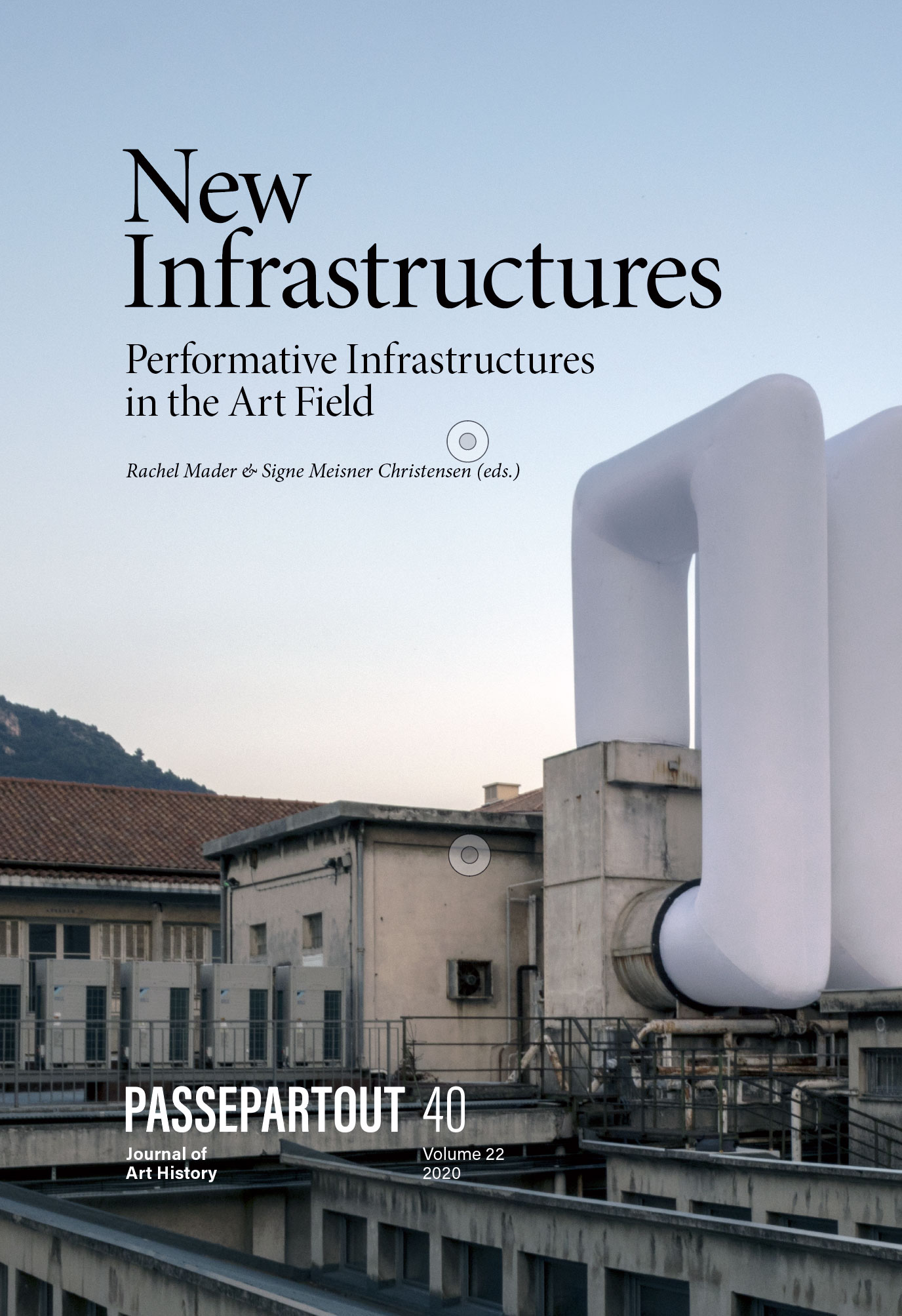Commoning-Based Collective Design
Moving Social Art Practice Beyond Representational ‘Rehearsals’ Into Concrete Social Solutions
Nøgleord:
Collective Design, Collaborative Practice, Social Activism, Commoning, Social EcologyResumé
This article outlines how a radical practice of commoning-based collective design is developing new concepts of social practices, through a direct democratic common assembly method. A commoning-based approach implies that collective design is being developed with the underlining principles of broader commoning practices and living. This includes an anti-capitalist standpoint and a focus on fairness, equality, inclusion, sharing, self-limitation and self-organisation (Bollier and Helfrich, 2019).
The underlining organizational principles are drawn from political theorist Cornelius Castoriadis’s argument for an ethical and political project of social organisation, which is based upon self-governance through an ongoing process of common assemblies, and Murray Bookchin’s conception of communalism, where “every productive enterprise falls under the purview of the local assembly … to meet the interests of the community as a whole” (Bookchin, 2015, pp. 17–18).
Two art exhibitions, thematically centered on precarious living conditions, as well as two ongoing social projects, serve as case studies that provide a reflective critique in which I argue how this methodological approach opens a new field of discourse relating to social participation in communal projects. Within this argument, a new critical interplay between art and architectural practices emerges in terms of fulfilling a role within long-term social change.
Referencer
Bollier, David: ‘State Power and Commoning: Transcending a Problematic Relationship’. A Report on a Deep Dive Workshop convened by the Commons Strategies Group in cooperation with the Heinrich Böll Foundation. Kloster Lehnin, near Potsdam, February 28–March 2, 2016. http://commonsstrategies.org/state-power-commoning-transcending-problematic-relationship/ (accessed May 3, 2018).
Boltanski, Luc and Chiapello, Eve: The New Spirit of Capitalism, London, New York: Verso, 2005.
Bookchin, Murray: The Next Revolution, Popular Assemblies and the promise of Direct Democracy. London: New York: VERSO, 2015.
Bookchin, Murray: The Murray Bookchin Reader, ed. Janet Biehl, Montreal:New York:London, Black Rose Books, 1999.
Castoriadis, Cornielius: The Imaginary Institution of Society, Trans. Kathleen Blamey, Polity Press, 2005.
Curnow, Joe: ‘Towards a Radical Theory of Learning: Prefiguration as Legitimate Peripheral Participation’ in (eds.) Springer, Lopes de Souza and J. White, The Radicalization of Pedagogy: Anarchism, Geography and the Spirit of Revolt, London, New York: Rowman & Littlefield, 2016.
Froud, Daisy: ’Normal People’ and the Politics of Urban Space, in Froud and Harriss (ed.s) Radical Pedagogies: Architectural Education and the British Tradition, RIBA Publishing, 2015.
García-Lamarca, Melissa: ‘Creating Political Subjects: collective knowledge and action to enact housing rights in Spain’, Community Development Journal, Vol 52 No 3 July 2017, Oxford University Press.
Kurnicki, Karol: ‘Towards a spatial critique of ideology: architecture as a test’ Journal of Architecture and Urbanism, 38:1, 80-89, DOI: 10.3846/20297955.2014.893642, 2014. (Accessed September 8, 2016).
Phillip, Davie: ‘The Art of Commoning’, Durty Words, Ed./Designers, Kate O’Shea and Victoria Brunetta, Self Published, Limerick, 2018.
Rogoff, Irit:‘Free’, e-flux journal #14 March 2010,p.10. https://www.e-flux.com/journal/14/61311/free/
Spencer, Douglas: The Architecture of Neoliberalism, London, New York: Bloomsbury Academic: London, New York, 2016.
Wenger, Etienne: Communities of Practice and Social Learning Systems: The Career of a Concept, 10.1007/978-1-84996-133-2_11. 2010. https://wenger-trayner.com/wp-content/uploads/2012/01/09-10-27-CoPs-and-systems-v2.01.pdf (accessed September 12, 2018).
Wenger, Etienne: Communities of Practice and Social Learning Systems: The Career of a Concept, 10.1007/978-1-84996-133-2_11. 2010. https://wenger-trayner.com/wp-content/uploads/2012/01/09-10-27-CoPs-and-systems-v2.01.pdf (Accessed September 12, 2018).
Wenger, Etienne, McDermott, Richard and M. Snyder, William:(2002) A guide to managing knowledge: Cultivating Communities of Practice, Boston Massachusetts: Harvard Business School Press, 2002.





